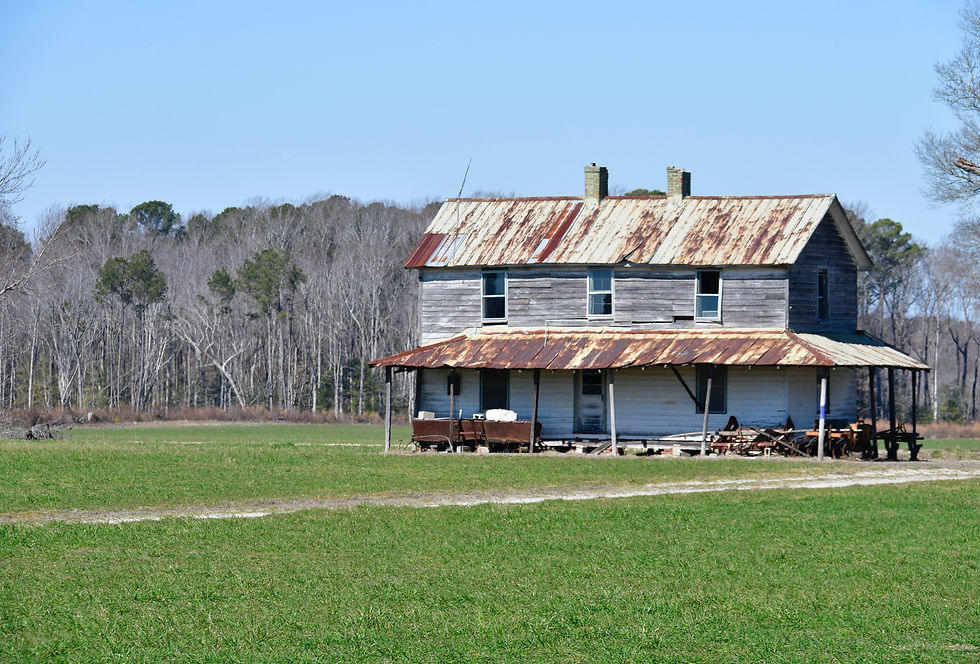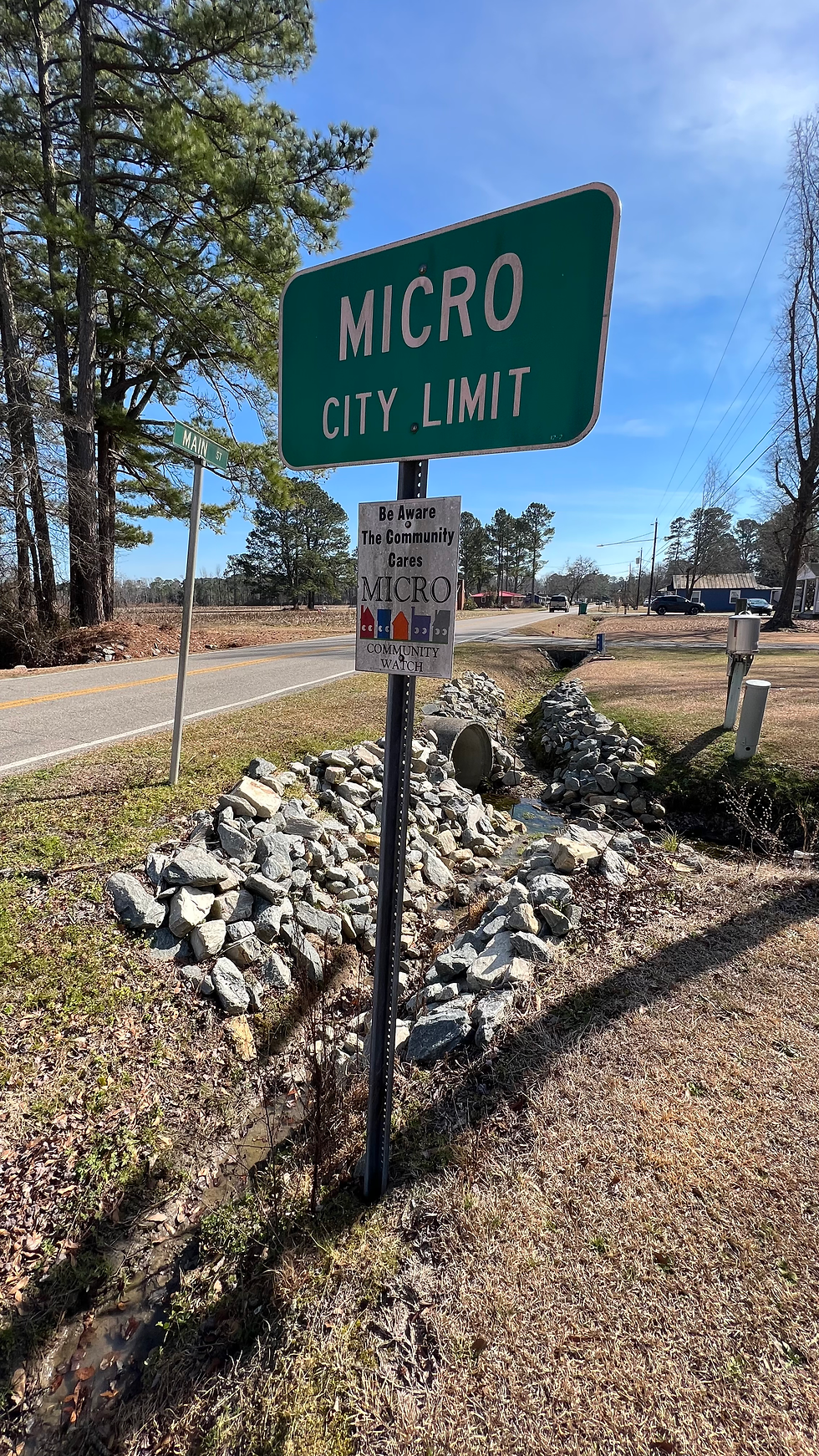
SpringHill Suites
Southern Pines
February 15, 2022
Holy cow! Eastern North Carolina is so rural. Coming off the Outer Banks I bet I drove through 60 miles of swamps. And then it was just open land with few towns -- and they were mostly the one-stop light variety. I shouldn't be surprised as I have passed through this area several times recently. But I am. It's remote.
My goal was to make it to Charlotte but after 260 miles, I only made it to Southern Pines. I finally feel like I have exited the remoteness I saw from OBX.
I listened to a couple of hours of Nick Offerman's book Where The Deer And Antelope Play. He is a wonderful storyteller. Part 1 of the book describes a trip he made to Glacier. Part 3 is about his two-month trip in an Airstream during the pandemic. Offerman doesn't pull any punches -- he calls it as he sees it. While that can be a bit distracting, the stories he tells about his trips are wonderful.
He got me wondering why our history books don't explain that the Europeans (our forefathers) conquered the Native Americans -- and that we were rather ruthless in doing so. And that we enslaved Africans and did so effectively unapologetically. His point is that we should call it like it was. Something to think about.
I came across two wonderfully named places today -- Micro and Barbecue. How priceless is it that there is a place named Barbecue, North Carolina??
Regarding Micro:
Micro is a town in Johnston County, North Carolina, United States. The 2010 population was 441.
As of the census[3] of 2000, there were 454 people, 211 households, and 124 families residing in the town. The population density was 1,114.9 people per square mile (427.5/km2). There were 225 housing units at an average density of 552.5 per square mile (211.9/km2). The racial makeup of the town was 90.97% White, 7.71% African American, 1.10% from other races, and 0.22% from two or more races. Hispanic or Latino of any race were 3.96% of the population.
There were 211 households, out of which 25.1% had children under the age of 18 living with them, 43.6% were married couples living together, 12.3% had a female householder with no husband present, and 41.2% were non-families. 39.8% of all households were made up of individuals, and 24.2% had someone living alone who was 65 years of age or older. The average household size was 2.15 and the average family size was 2.88.
In the town, the population was spread out, with 22.7% under the age of 18, 7.3% from 18 to 24, 26.0% from 25 to 44, 22.2% from 45 to 64, and 21.8% who were 65 years of age or older. The median age was 40 years. For every 100 females, there were 85.3 males. For every 100 females age 18 and over, there were 75.5 males.
The median income for a household in the town was $28,889, and the median income for a family was $39,773. Males had a median income of $30,962 versus $20,000 for females. The per capita income for the town was $15,629. About 1.4% of families and 8.3% of the population were below the poverty line, including 4.1% of those under age 18 and 27.9% of those age 65 or over.
Regarding the name, the lore is Micro was settled in 1890 and was incorporated in 1899 as Jerome. The town was named after Jerome Creech, who was a local land owner. However, six years later in 1905, the town was renamed to Micro because of confusion with the Bladen County community of Jerome.
While I was in Micro, I had a fun conversation with a couple of older folks at the Micro Post Office. The man told me that he wasn't from Micro, that he was born and raised in Selma. Turns out that Selma is not much bigger than Micro and is located two miles away.
Regarding Barbecue:
Barbecue is an unincorporated community located in the Barbecue Township of Harnett County, North Carolina, United States. It is a part of the Dunn Micropolitan Area, which is also a part of the greater Raleigh–Durham–Cary Combined Statistical Area (CSA) as defined by the United States Census Bureau.
An early settler to the area named “Red” McNeill saw steam rising from a nearby creek. It reminded him of the meat-cooking pits he had seen in the Caribbean, and he named the creek Barbecue Creek.The name became official in the early 1750s, as Scottish Gaelic-speaking settlers began migrating into the area.
History
An early minister of the Barbecue Presbyterian Church was Rev. Iain Beutan (John Bethune), a native of Glenelg and who, around 1773, famously persuaded the Gaelic poet Iain mac Mhurchaidh to emigrate from Kintail to the Colony of North Carolina.
As in other Gaelic-speaking communities in North Carolina, early Reformed worship at the Barbecue Presbyterian Church continued the 16th century practice of congregational singing of exclusive psalmody in Scottish Gaelic, in an a cappella form called precenting the line.
The church's attendees during colonial times included Flora MacDonald, a member of Clan MacDonald of Sleat who had famously helped Prince Charles Edward Stuart escape arrest following his defeat at the Battle of Culloden in April 1746.
Along with Iain mac Mhurchaidh and Flora MacDonald's husband, Rev. Beutan sided with King George III at the outbreak of the American Revolution and served as a Loyalist military chaplain during what was later dubbed, "The Insurrection of Clan Donald." Rev. Bethune was taken prisoner by Patriot militia following the Battle of Moore's Creek Bridge on 28 February 1776 and was imprisoned in Philadelphia with the other Loyalist officers. After first fleeing to British-held Montreal, Rev. Bethune ultimately settled among his fellow Gaels at Williamstown, in Glengarry County, Ontario, where he organized the first Presbyterian Church in Upper Canada.
Despite Rev. Bethune's Loyalism, both the church and the local district were known afterward as, "an island of Whigs in a sea of Tories."
Furthermore, on March 27, 1781, the church was the site of a skirmish between local Patriots from the Cumberland County Regiment of Militia under the command of Captain Daniel Buie and British Legion dragoons under the command of Lt.-Col. Banastre Tarleton. The skirmish left one patriot dead, an unknown number wounded, and was a resounding British victory. The surviving Patriots were taken prisoner and placed aboard prison hulks in Charleston harbor.
Photos from the day:
Photo from a road in OBX. Excluded? I thought the appropriate word was "prohibited."

Updated tractor sign -- no more little man driving the tractor!

This billboard seems a bit out of place in rural North Carolina. I did not take a photo of the billboard screaming BELIEVE with an X through an image showing the evolution of humans.

US 64 headed west from OBX.


Old farm house in eastern North Carolina.



An old barn.


While the area was rural, there were a reasonable number of what I would call "plantation homes," some in good repair and others showing their age.

Get it? It's a cemetery.

What an awesome name for a road!


Heading to Micro.









Two Amtrak trains passed through Micro during the 30 minutes I was there.


Barbecue.




I won these beers as my prize for checking into my hotel.

Комментарии